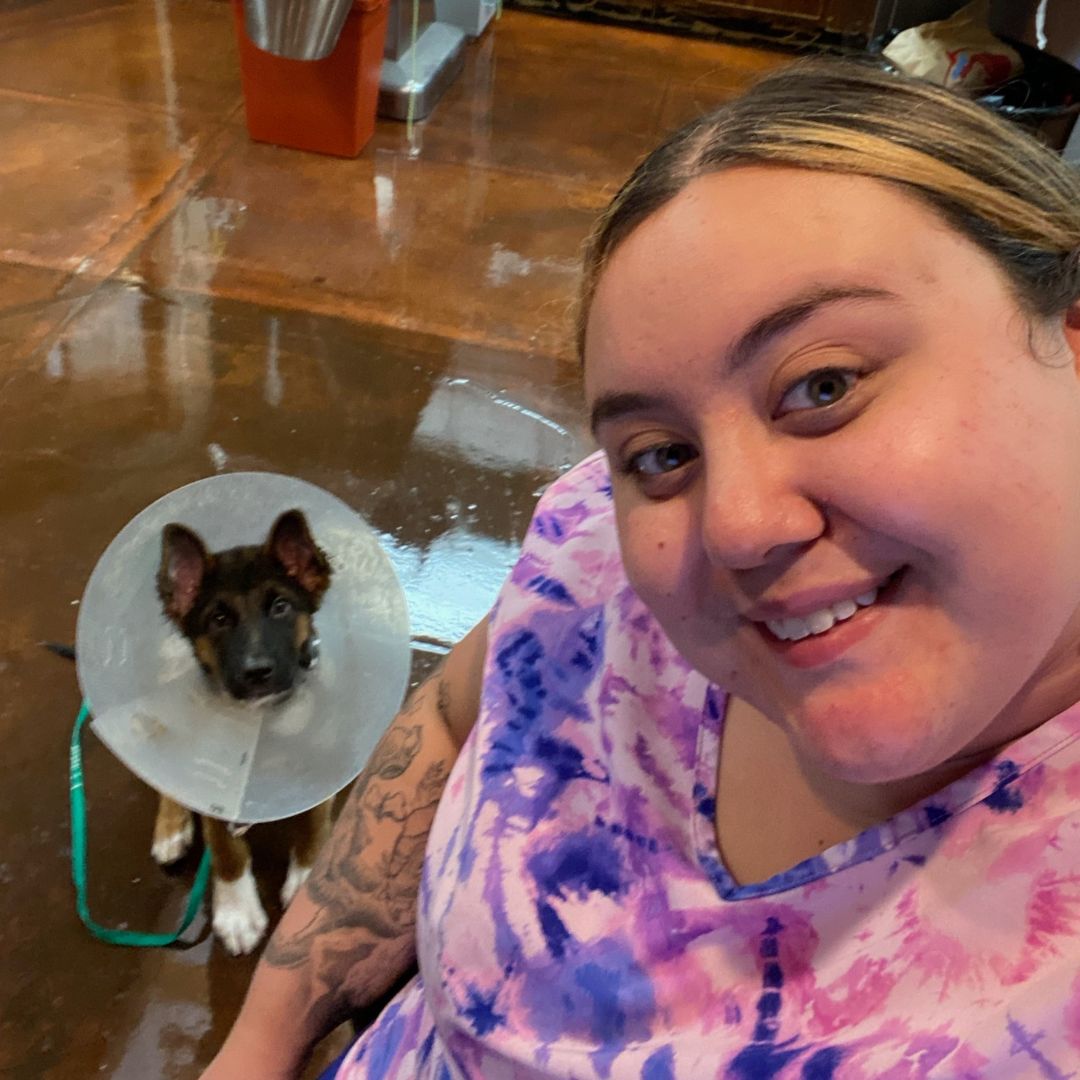Veterinary Surgery
Westridge Animal Hospital in Phoenix, AZ, conducts a comprehensive range of professional pet surgical services, including spaying, neutering, soft tissue surgery, dental surgery, and minor orthopedic procedures.
Veterinary Surgery Phoenix, AZ
At Westridge Animal Hospital in Phoenix, AZ, our team is dedicated to providing safe and compassionate surgical care for your pet. Whether your companion requires routine surgery or a more complex procedure, we focus on their well-being and recovery to help achieve the best possible outcome.

Why Choose Westridge Animal Hospital for Veterinary Surgery?
We understand that surgery can be a stressful experience for both pets and their owners. That’s why we prioritize safety, comfort, and clear communication throughout the process. From pre-surgery consultations to post-operative care, we’re committed to guiding you through every step.
- Experienced Surgical Team: Our veterinarians have the expertise to perform a variety of surgical procedures, from routine to more advanced surgeries.
- Advanced Anesthesia Monitoring: We prioritize your pet’s safety with continuous monitoring of their vital signs throughout the surgical procedure.
- Customized Pain Management: We develop individualized pain management plans to ensure your pet’s comfort during recovery.
- Post-Operative Care: We provide thorough post-surgery instructions and follow-up care to support your pet’s recovery at home.
Types of Veterinary Surgery We Offer
We offer a broad range of surgical services to address your pet’s specific needs. Whether the surgery is planned or required on an emergency basis, our team will provide the necessary care to help your pet heal.
- Spaying and Neutering: These routine procedures are aimed at preventing health issues and controlling the pet population.
- Soft Tissue Surgery: This type of surgery includes procedures such as mass removals, wound repairs, and abdominal surgeries like removing foreign objects or bladder stones.
- Orthopedic Surgery: Orthopedic injuries and surgical diseases are common in small animals. Some procedures require specialized equipment or training to perform. Our doctors and staff are here to guide you to an optimal solution for your pet’s problem at Westridge Animal Hospital or via referral for more specialized procedures.
- Dental Surgery: We provide oral surgeries such as tooth extractions to prevent or address infections and pain caused by dental issues.
What to Expect During Your Pet’s Surgery
We want to make the surgical process as smooth and stress-free as possible. Here’s what you can expect when your pet undergoes surgery at Westridge Animal Hospital:
- Pre-Surgery Consultation: Our veterinarians will evaluate your pet’s health, explain the procedure, answer any questions you have, and provide an estimate of anticipated charges.
- Pre-Anesthetic Testing: We recommend blood work prior to surgery to assess your pet’s health and suitability for anesthesia.
- Personalized Care: During the procedure, your pet will be continuously monitored by our veterinary team to ensure safety and comfort.
- Post-Surgery Monitoring: After surgery, your pet will be monitored closely as they recover, and we’ll provide detailed at-home care instructions to support their healing process.
Contact Us for Veterinary Surgery in Phoenix, AZ
If your pet requires surgery, trust the team at Westridge Animal Hospital to provide compassionate and professional care. We are here to answer any questions and guide you through the process to ensure your pet receives the best possible care.
What You Need to Know Before Surgery
Is Anesthesia Safe for My Pet?
Thanks to advancements in modern anesthetic monitoring, surgery today is much safer than ever before. At Westridge Animal Hospital, we prioritize your pet’s safety by performing a thorough physical exam and pre-surgical blood testing prior to any anesthesia. This helps us identify problems that can increase anesthetic risk or complicate the procedure. We tailor the type and dosage of anesthetic based on your pet’s specific health needs.
Pre-Surgery Blood Testing
Pre-anesthetic blood work is an important aspect of reducing anesthetic risk. We perform blood testing for patients undergoing surgery to ensure their liver and kidneys can safely process the anesthetic. Even pets that seem healthy may have underlying organ issues that only blood tests can reveal. Identifying these issues beforehand helps prevent potential complications during surgery.
For geriatric or medically compromised pets, we may also recommend additional tests, such as ECG or X-rays.
If pre-anesthetic screening reveals problems that could increase anesthetic risk, we may recommend postponing surgery until the condition is addressed and stabilized.
Fasting Before Surgery
To minimize the risk of vomiting during or after anesthesia, it’s essential that your pet’s stomach be empty. Please withhold food for at least 8 to 10 hours before surgery, but water can be offered up until the morning of the procedure.
At Westridge Animal Hospital, we take every precaution to make sure your pet is safe and comfortable throughout the surgical process.
Will My Pet Have Stitches?
For many surgeries, we use absorbable sutures, which will dissolve on their own and do not need to be removed later. Some surgeries, especially tumor removals, do require skin stitches.
With either type of suture, keep an eye on the incision for swelling or discharge. Watch to make sure that your pet does not lick excessively or chew at the incision. Skin sutures will usually be removed 10 to 14 days after surgery. You will need to limit your pet’s activity level during their recovery. Do not bathe your pet for the first 10 days after surgery.
Will My Pet Be in Pain?
The amount and type of pain relief your pet needs will depend on the nature of their surgical procedure. Major surgeries, such as splenectomies or foreign body removals, typically require more intensive pain management than minor surgeries, such as the treatment of small lacerations.
- General Post-Surgery Pain Control: Injectable pain medications may be used after surgery to ensure the comfort of both dogs and cats. Providing effective pain management is not only humane but also an essential part of ensuring a smooth and speedy recovery.
- Pain Management for Dogs (Canines): For dogs, we often recommend oral anti-inflammatory medications starting the day after surgery and continuing for several days to reduce pain and swelling.
- Pain Management for Cats (Felines): Felines have unique pain management needs because they cannot be given many classes of analgesic medications. Most cats receive a long-acting narcotic at the end of the surgery, which provides 24 to 36 hours of pain relief. In addition, the human medication gabapentin can be given to cats postoperatively for pain relief and sedation.
At Westridge Animal Hospital, we are committed to making sure your pet’s recovery is as pain-free as possible, using the most appropriate and effective methods for their individual needs.
What Other Decisions Should I Consider?
While your pet is under anesthesia, we can also address any additional minor procedures, such as removing small skin growths, checking or cleaning ears, or implanting a microchip for identification. These add-on procedures must be discussed with the doctor and staff prior to surgery.
When you bring your pet in for their procedure, we’ll need a few minutes to complete any required paperwork and discuss potential additional options, including other procedures. At the time of discharge, plan to spend another 10 minutes with us to review your pet’s post-surgery care instructions.
We will call you the evening before the surgery to confirm the drop-off time and answer any last-minute questions. In the meantime, if you have any concerns about your pet’s health or the upcoming surgery, don’t hesitate to reach out.
